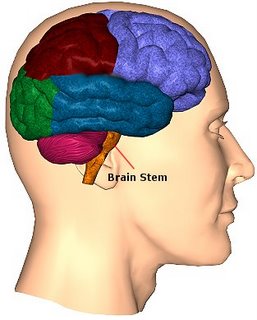Hey, why is it then that I get high, or feel less lethargic after eating sugar-rich apples? Why do I feel more energetic only if my coffee has loads of sugar, but still feel sleepy when I drink it black?
Doesn't taking sugar before a race enhance performance? Carbo-loading and all that? If people feel high when they are energetic, and sugar gives energy, doesnt that mean sugar makes people high?
-jloh
To John:
Disclaimer:
Though I am confident of the facts that are listed in this blog entry, I am uncertain if this is the real cause of what you are experiencing. I am only going to hypothesize and not try to give a definitive answer to each of your questions.
Definitions:
High - A sudden change in mood, delirious or hyperactive arousal of some sort.
More energetic - An increase in alertness and capability of mental activity.
1) Apples and lethargy
It is a fact that apples help to increase mental alertness. Chemicals found in the apple regulate and prevent the buildup of serotonin, another neurotransmitter. Serotonin is a “sleep-inducing” chemical which causes drowsiness. This would be the most probable cause of feeling less lethargic after eating apples. Another hypothesis would also be that apples contain a huge amount of zinc. Zinc is an integral part in many enzymes, one of which is carbonic anhydrase, present in high concentrations in red-blood cells. It is responsible for the rapid combination of carbon dioxide and water in the blood as well as the release of carbon dioxide from the blood into the alveoli to be exhaled. As such, a faster decrease in the amount of carbon dioxide would result in a faster increase of the amount of oxygen in the blood, thus causing mental alertness. Apples do not cause a fast increase in blood sugar levels, but however regulates the blood sugar levels through slow digestion and through chemicals like isoleucine, leucine.
2) Coffee with Sugar
As a coffee drinker myself, I believe that coffee with sugar does also give me that extra perk. However, I feel that coffee with a lot of sugar would not cause someone to get high but rather to be more energetic. Sucrose, table sugar, is easily hydrolysed in the stomach and is easily assimilated. As such, the brain has an excess of energy to perform its routine functions. However though the brain has an excess of energy, hyperactivity nor arousal does not happen because dopamine is not excessively released and production of serotonin is not reduced. ATP can be formed readily and thus the brain works fast, causing mental alertness. But in no way does the brain register a sharp increase in released neurotransmitters nor other excitement related symptoms.
3) Carbo-loading and Energy
Yes it is no doubt that taking sugar in the form of sucrose before races does enhance performance. More glucose is available for aerobic and anaerobic respiration to be converted into energy. After consuming the supplements, an athele does not feel high. However the "high" is not caused by the intake of excess sugar, but instead is caused by the exercise itself. During an exercise or a race, many hormones are produced. It is the endorphines, adrenaline, enkephalins and catecholamines produced. These hormones cause the high and the excitement after an exercise.
_________________________
In conclusion:
Your bodily enzymes can be more efficient in energy production after you drink a cup of sugar loaded coffee because more glucose is available. However, after you exercise, you feel "high" because of hormones produced. Think about it. The feeling that you get after exercise greatly differs from the feeling you get after drinking sugar loaded coffee. Think deeper. Your adrenal glands do not pump out adrenaline when you drink coffee with lots of sugar. Endorphines are not produced when you suck a sweet.
Interestingly, though its 1 am in the morning, I have come up with what I will call Chow's hypothesis. A neurological "high" is caused and defined by an increase in hormonal production causing a change in neurological behaviour. An increase in energy levels / decrease in lethargy is caused and defined by an increase in enzymatic function, liberating energy from glucose thus causing a change in mental alertness. =)
Hope this answers your question.
